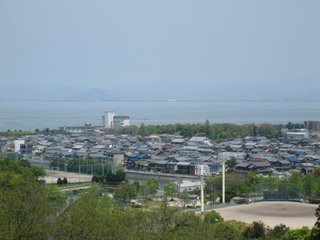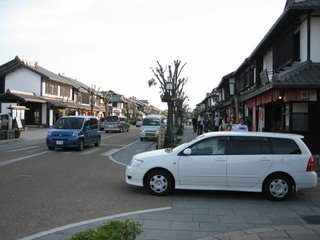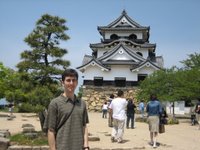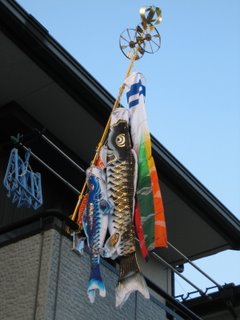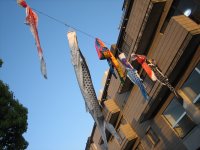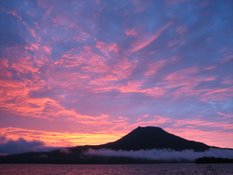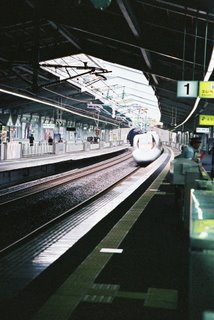
It seems to me that Japan is nothing if not efficient. How many other places can you be in the downtown of one city at noon and then be in the downtown of another city 340 miles away by 2:30 pm? That is the beauty of the bullet train (shinkansen in Japanese). I took the fastest one available from Osaka to Tokyo right after I taught my morning class at KGJH. There was an alumni meeting for MIIS graduates in Tokyo that I really wanted to attend. Sure it would be an expensive weekend, but how can you put a price on friendships rekindled and a new experience and perspective? This trip was at the end of a very long week of test design for midterms, so I didn't get to give this weekend all of the planning it deserved. I'm not sure it would have done me much good. Take a look at the subway map of Tokyo, and you'll understand why.
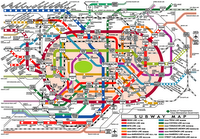
I budgeted 2 hours for myself to get my bearings, check into my capsule hotel (more on that later), and get to the party. It ended up taking me 3.5 hours. I didn't factor in the labyrinthian underground passageways that allow no one to get their bearings with cardinal directions or landmarks, just signs, of which there are never enough in English. Still, there are a lot in English and I'm grateful for the Metropolitan government to give me that.
It was a hot day and I wore my suit on the train because the dress code for the alumni meeting was "business attire". I've overpacked because I threw stuff together after class and didn't get to weed out the unneeded stuff like I usually do. I've double backed through subway stations, bought the ticket to the wrong subway line, and now I'm looking for a capsule hotel that's 5 floors up. I walk the streets of Shinjuku, passing girls dressed up as baby dolls, Goths, super tan barbie dolls, and men dressed in hip-hop gear like they live south of 8 Mile (but actually in their parents' condo). Quite the swinging urban scene.

I finally made it to the capsule hotel and began the second phase of my overwhelmtion in Tokyo. If you're totally new to the concept, check out this
guy's blog entry on them. My hotel said no photos or you're out, so I played it safe. Too safe, but for the first time, just scout and take risks later. My impression of the capsule hotel was that it has all the amenities of a regular hotel room, but they're all spread out communally over several floors. Bed - 3rd floor, closet (locker) - 4th floor, bathroom - 6th floor, restaurant - 5th floor. The Green Plaza capsule hotel also ran a sauna, so they included admission to it in the price of the lodging.
I made it an hour late to the alumni party, but the hour that remained was enough to touch base with the other TESOL grads there and set up an after party with some other folks from the different programs. Half were Japanese, half were something else (mostly Americans). We got a private room in the basement of a bar, had a few drinks (I was the designated subway rider, so I had tea) and of course, exchanged business cards.
Sunday morning I checked out of the capsule hotel. I didn't get much sleep because I was 2 feet away from 6 snoring men while I could hear someone heaving up his yakitori in the bathroom,
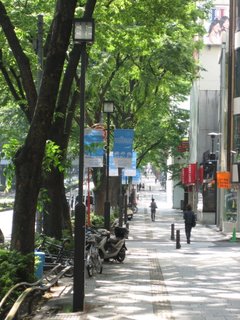
another one flatulating away his curry udon into the still air of the sleeping quarters, and I was lying on 1 inch of mattress between a plastic floor to my capsule. Still, it was a unique experience so now I can say, "been there, done that, probably won't do it again unless for kicks and whinneys". I didn't have a place to stay in mind for Sunday night, but I was hatching a plan to take an overnight bus back to Osaka based on the return of my prospects for meeting up with friends I had contacted prior to my trip.
I went to the Christian Science church in Harajuku. It is off a beautiful street lined with big shade trees and wide brick-paved sidewalks. I was warmly welcomed by the ushers and sat down for a nice respite before the service. The readers read the scriptural selection and benediction in English for the handful of English-speakers in the congregation. The architecture inside the Tokyo church is what I would call typical of churches of Christ, Scientist with two walls behind the readers bearing quotations from the Bible and Mary Baker Eddy, organ, pews, and vaulted ceiling.
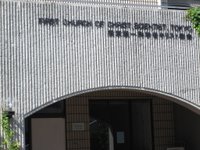
In contrast,
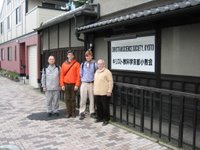
our Kyoto society was formerly a Japanese home, so we have stained virgin wood beams, a small garden, and paper walls separating rooms. Even Christian Science institutions reflect Japan's new & old living side by side! There was a membership meeting after the service where a young new member was going to be welcomed, so I didn't linger too long to speak with many of the members. Instead, I headed off for a "nationally famous" ramen shop in search of the most delicious bowl of noodles and pork cuts. In a total coincidence, I ran into one of my classmates from MIIS as she ascended the subway steps and I descended. In a city of 11 million where both of us were in town for less than 48 hours, what are the odds of that? She was with two other friends and let me tag along with them as they searched for an art bookstore.
Then I enticed them to join me for ramen. The restaurant was touted by Lonely Planet as having usual lines out the door, but our word on the street was that is was "ma-ma" so-so. I held the jury for my own judgment. I was picturing some hole-in-the-wall that just relies on the recipe to draw its customers like some tucked-away Southern US BBQ joint.
 Ippudo
Ippudo apparently has chained off into a number of branches, so maybe that has dispersed the crowds. I ordered the lunch set with rice, gyoza (pot stickers), and extra pork cuts - what Suzanne would call "the carbohydrates lunch". My fetish with ramen noodles dates back to September 2003 when I saw the movie
Tampopo in my language teaching methods class. So when the pork cuts melted in my mouth at my first bite, I knew that I had found a very special place. The others had their favorite in Nagoya, so I guess I'll have to try it before I leave!
My final sightseeing stop was the
Edo-Tokyo Museum which chronicles the history of the city while providing a lot of hands-on opportunities to experience life for Tokyo residents of yore. You can pedal a rickshaw, walk through a era-specific home, bear a fireman's standard, and balance weighted water jugs on your shoulder. I give it two thumbs up!
Finally, I met some of my friends from Kanda University of International Studies (
KUIS) who visited
MIIS on a study abroad last March. We went to an izakaya (bar) eight stories above the Tokyo train station. What an incredible view. We had a private room for the five of us where we ordered plate after plate of finger food and glasses of alcohol to chase it down (I was designated bus rider so I had ginger ale). This was a very special evening for a number of reasons. I have felt quite lonely in Nishinomiya for lack of Japanese peers who I can talk to.

Here I could talk about some very personal things with them. At first I was watching my words and sentence construction so as not to say anything that was over their heads. Then Yoko said that I didn't have to do that because they've been to the USA and could handle the authentic speech. I felt bad for low-balling their English ability because I knew what a remarkable teacher they had at KUFS. And finally that we could have our own space to talk instead of competing against the volume of other restaurant patrons. It made our group interaction feel just a bit more special.
9:30 pm came and I knew that the night busses to Osaka started to leave around 10. We paid our bill (20k yen split evenly between 5 of us came to $35, expensive but worth it for the relationship building) and dashed across the street to get me on a bus. Two of my friends paid to come inside the train station to help me get my bag out of the coin locker while the other two went to find the bus depot. Then we all regrouped to find and purchase a ticket for the best bus to get me back to Kansai. I am constantly impressed by moments of unselfish teamwork like this from my Japanese friends. We walked out to the loading bus and said our goodbyes. There was an awkward moment when they stood there looking at me. I was waiting for typical bow and they were waiting for a typical American hug! Never the shy one, Yoko asked for one and then we all exchanged hugs. It is not typical to express such public affection, but things are changing in Japan, and these abroad-traveled students are on the vanguard in some ways.
I had a slow 9-hour ride to Osaka to reflect on the special moments that Tokyo gave me this weekend. I think it has been a turning point in my time here. On my first day back to Nishinomiya I had an extended conversation in Japanese with a past-student and another one with a woman on the street who was walking her dog. Most times I am left alone, but perhaps my trip to Tokyo to build relationships with Japanese friends has made me more approachable to other Japanese. Just a theory.
 USA, Canada, Japan, Jamaica, Ukraine, Romania, Turkey, Belgium, Thailand, Taiwan, Bolivia, and Poland. I know people in the first 7 (except Canada) so the rest are people just surfing the web and finding me. Cool! Few of them show up in my Frappr map because they didn't choose to put a tag on it. Now how can I get visitors from Africa and Australia to round out my continental coverage?
USA, Canada, Japan, Jamaica, Ukraine, Romania, Turkey, Belgium, Thailand, Taiwan, Bolivia, and Poland. I know people in the first 7 (except Canada) so the rest are people just surfing the web and finding me. Cool! Few of them show up in my Frappr map because they didn't choose to put a tag on it. Now how can I get visitors from Africa and Australia to round out my continental coverage? There's probably an ethical dilemma to this. I see it this way: if the train is of value to me based on where it takes me from and to, then I should be charged based on where I get in and out. You could live in the train system if you wanted to, but no one does. One has to come out sometime and the computer doesn't care where they've been in the meantime.
There's probably an ethical dilemma to this. I see it this way: if the train is of value to me based on where it takes me from and to, then I should be charged based on where I get in and out. You could live in the train system if you wanted to, but no one does. One has to come out sometime and the computer doesn't care where they've been in the meantime.







